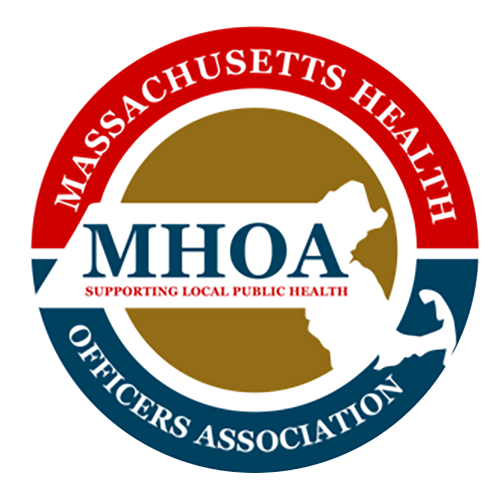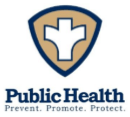Complete Story
09/10/2020
MHOA Spotlight – Teresa Wood Kett
By Abby Faria
By Abby Faria
Teresa Wood Kett is a Public Health Program Specialist in the Newton Health and Human Services Department and MHOA member. She oversees a number of programs within the department including emergency preparedness, Medical Reserve Corps, tobacco, flu, communication and more. This role provides her with the flexibility to focus on different emerging needs. One such need is the COVID-19 pandemic. I had the pleasure to get to interview Teresa Kett on her career and experiences in the public health field and as a MHOA member.
Q: What drew you into the field of public health?
A: I studied journalism as an undergraduate and worked as a newspaper reporter following college. I later elected instead to pursue a Master in Public Health degree from Boston University seeking a more rewarding career that still offered variety in the work and allowed me to work as a part of a community. At the time I started graduate school, I didn’t exactly know what area of public health I wanted to work in. For the Summer of 2005, I participated in the MDPH Summer Intern program and was placed with the Arlington Board of Health where I was exposed to local public health. This internship connected me with great leaders in local public health, more internships and eventually jobs both with the Arlington Board of Health and the Newton Health and Human Services Department following my MPH graduation. I’ve worked in Newton now for almost 15 years.
Q: How has the COVID-19 pandemic impacted the projects and initiatives of your LBOH?
A: The majority of our current work is focused on the pandemic. We’re responding to current needs and looking ahead to the next 6 to 12 months to adapt our work in a pandemic environment. Some things have taken a back seat to pandemic response, but part of what we’re supposed to do as a local health department is respond to emerging needs, so that’s what we’re doing.
Q: What are some of your favorite aspects of your job?
A: Public health by nature is collaborative, and I appreciate having great colleagues. I’ve met some inspiring people through my job. Writing and communicating well is important in most jobs. In public health it’s paramount. I appreciate the challenge of communicating complicated and significant health information whether it’s flu season, an active mosquito year, or a pandemic. And, I love the crazy stories and calls that come into our office. When people have a problem and don’t know where to get help, they often call us. Having a sense of humor, patience and understanding goes a long way in local public health.
Q: Outside of working in public health, what are some of your hobbies/favorite things to do?
A: I’ve always loved reading, so that’s something I do as much as I can. I had to switch mostly to audiobooks I listen to on the way to/from work or falling asleep at night. I love the sleep timer feature on my audio app! I also enjoy being outside, particularly at the beach. I have two young kids so much of my free time is spent around them and their activities. I’m a hockey mom and about to become a Daisy Girl Scout leader. My extended family lives out of state, so in a normal summer I would be enjoying a vacation to see family and friends. But sadly, not this year. I’m looking forward to when travel like this can happen again.
Q: How do you see the future of your work changing as a result of the COVID-19 pandemic?
A: This is a hard question given that we’re still very much in the midst of this pandemic. I hope we’re all better off in terms of systems that are established and last to make us more efficient and nimble in our responses to emerging public health needs. I hope more people are interested in going into this field. Things aren’t going well in a lot of other parts of the country, so I hope that doesn’t affect the credibility of public health overall. I think there’s so much more ahead of us, and I am glad to be living where I do and a part of the response here.
Q: How has MHOA helped you in your work during the COVID-19 pandemic?
A: MHOA continues to be a great advocate for local public health. I have appreciated being able to email Dawn Sibor with a question or problem we’re facing, and she’s able to elevate it to help get answers. MHOA provides education, support and connections within the field of local public health, and has continued that work through this pandemic, too.
Q: What struggles has your LBOH run into with this pandemic? How can organizations like the MHOA assist with that?
A: Getting timely information that’s clear, concise and not in conflict with previously provided information. MHOA has already been a great help in advocating at a variety of levels to help local public health get the information and resources it needs. Continuing this advocacy will serve us all well.


